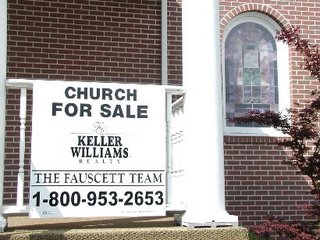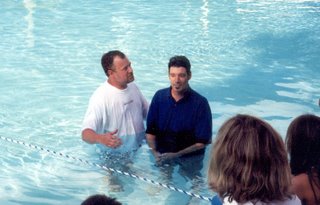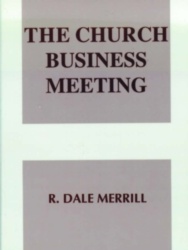Recently our church baptized several new Christ-followers in the pool of one of our church members. It was a joyous celebration and made even more joyous by the fact that we gave people the opportunity to participate in the ordinance. If you want to create a passion in your church plant for seeing people baptized, follow Jesus' pattern for engaging others in both the dunking and the discipling.
It was in Maine that I first read Jesus' words in John 4:1-2 with new eyes:
Jesus learned that the Pharisees had heard, "Jesus is baptizing and making more disciples than John" (though Jesus himself didn't baptize them—his disciples did). So he left Judea to return to Galilee.I was a new pastor and had just baptized people for the first time. It was an incredible experience for me and I wanted our other church members to have that experience. When I read these words, I realized that you did not have to be a certified, card-carrying pastor to baptize folks. Here Jesus was giving the thumbs up to regular disciples baptizing their friends, neighbors, family members and anyone who came to a relationship with Christ. We began to follow this practice in our new church, and within a couple of years had over a dozen people who had baptized new believers. When someone came to a relationship with Christ and was ready to be baptized, we would simply ask them who they would like to do the baptism. Who was it who had first shared Christ with them or brought them to church? Who had exemplified Christ to them? After they told us, we would ask that person (or persons) if they would be willing to baptize and we would instruct them on how to do that. Often there were 2 or 3 of us doing the dunking for each new convert!
We had single moms baptizing their children, older brothers baptizing their younger siblings, small group leaders baptizing folks in their group, and friends baptizing their friends. It was amazing to watch and still is. We have the same practice in the church I serve now. In fact, a few weeks ago we baptized a whole family, or I should say, they baptized each other! And one of our college girls had her 85-year old grandfather come and baptize her. It was a magical day and I know those who did the baptizing will be far more likely to feel a commitment to disciple the folks they dunked. Not only that, but it is so exciting, oftentimes the baptizers can't wait to share Christ with and baptize someone else!
What are other ways to create a passion for baptism in your church?
- make the service a celebration. We have a potluck or watermelon or ice cream and a pool party after the service. The church enjoys the fellowship and it reminds us that we should celebrate when the lost are found.
- Ask the congregation for a response during the baptism service. We ask all those present to verbally affirm that they will pray for the new believer and hold them accountable to follow Christ. That way everyone gets to participate.
-Ask people to tell the story of how they came to Christ. Either the baptizee or a close friend or family member can tell the story to those gathered. This reminds the church how these things happen and how they can share the love of Christ with others.
- Invite lost people to come. Bringing family members or friends who do not yet know Christ is a great way to remind the church that there are still many who have not yet heard. And this may also have dramatic results: once in Maine we did a baptism service at a park on the ocean. Two boy scouts visiting from Pennsylvania came over to watch and asked one of our men what it was all about. He talked with them and led them both to Christ while the service was going on! That was a day of rejoicing!
Anyway, the application is this: sharing every aspect of ministry, especially the joyful experiences, with other believers builds leaders, creates passion, and shapes the hearts of the church. That is our philosophy at Mission M Possible, and why we believe that students should engage in every aspect of church planting. The deeper their experience, the deeper their passion for missional living and for seeing others come to know Jesus. And there is no reason (besides selfishness or ignorance) for not letting them participate in this way. Following Jesus' pattern in this is the best ministry decision I ever made.
How does your church engage people in baptism? How do you creatively engage people in other practices in your church plant? How are you mentoring others to have a passion for the work of redemption?






